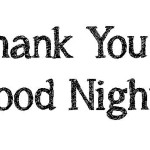It’s easy to feel, these days, that we’re swirling in a coronavirus-induced vortex of helplessness. In many regions, COVID-19 case counts are jumping dramatically. Health care workers face impossible decisions about who to disconnect from ventilators. And those of us who remain well must comply with “stay at home” orders, which anchor us in place as the needs of people around us keep growing.

Our first instinct may be to hunker down and protect ourselves and our immediate families. But to get through these times with our sanity and well-being intact, we may need to push back on this initial impulse—to turn outward, not just inward. Research shows that when we put a high priority on reaching out to others, our own mental and physical health flourish.
It’s a rare win-win proposition in a bleak landscape: In helping other people get through this crisis, you can help yourself in equal measure. “It’s a way of reframing your existence,” says bioethicist Stephen Post, “getting out from the negative vortex and feeling free to do something that is meaningful.”
Helping buoys the helper, not just the recipient
While we’ve never faced a foe quite like COVID-19 before, doctors and scientists have studied what happens when people pull together and help others after a setback. About a year after the 2008 financial crisis, when thousands of people lost their jobs and homes, Post and his Stony Brook University colleagues surveyed 4,500 people about their volunteering habits and their mental health.
In the wake of the financial downturn, rates of volunteering were higher than they had been the year before—and that bump came with clear psychological benefits.
Eighty-nine percent of people felt happier overall thanks to their helping efforts, and 78 percent reported that volunteering helped them better deal with disappointment and loss. About three in four volunteers felt less stressed. Many respondents reported making deeper friendships by connecting with other helpers.
“When people feel vulnerable, they can take their mind off the self and the problems of the self, and just experience the simple gratification of contributing to the life of another human being,” Post says. “That’s how people were coping.”
Helping also buoys us mentally because it directs our focus away from scary abstractions and back toward concrete, solvable problems. One of this pandemic’s defining features is the numbing parade of numbers—new cases mounting by the thousands, hospitals inching closer to capacity overrun.
Psychologist Paul Slovic has long contended that our brains check out when we consider the abstract fate of large populations: We aren’t fully equipped to process what it means when a small town’s worth of people dies each day. Concentrating on what individual people need, on the other hand, motivates us to help—and we then reap the benefits that come with that decision.
At the height of a pandemic, it seems especially relevant that helping promotes robust physical health, as well.
In a 2013 study of adults over 50, those who volunteered regularly were 40 percent less likely than non-volunteers to have high blood pressure years later. And incredibly, frequent volunteers have lower mortality rates across the board. A Stanford University team reported that, over an eight-year period, people who volunteered occasionally had a 25 percent lower risk of dying than those who didn’t help—while people who volunteered frequently were 33 percent less likely to die.
Creative stay-at-home helping ventures abound
But how do you help people when you’re stuck at home?
Social distancing and shelter-in-place restrictions do put some volunteer opportunities out of reach, especially for members of high-risk groups. However, motivated helpers have found plenty of creative ways to serve others remotely.
When doctors and nurses in the San Francisco Bay Area started running out of personal protection equipment (PPE), thousands of people donated surgical and N95 masks, face shields, antiseptic wipes, and other materials to Kaiser Permanente and other health care organizations.
We tend to get caught up in thinking that only medical personnel and first responders can make a meaningful difference during this crisis. Yet in the coronavirus era, “simply reaching out to people is being helpful and heroic in small ways,” says University of Richmond psychologist Scott Allison. “Each of us can make a positive difference by tapping into our strengths and sharing them.”
In a shelter-in-place context, that might mean teaching a free online math class to kids who can’t attend regular school, or a few minutes a day doing Skype check-ins with lonely members of your social circle.
You don’t have to commit full-time to these practices to make a major difference in others’ lives—and your own. In Post’s study, most volunteers “weren’t overdosing. They were volunteering on average 100 hours a year,” he points out. “If you wanted to space that out, you’re talking about a couple of hours a week, more or less.”
Thinking about helping as an incremental venture, rather than an all-or-nothing one, may help you overcome any initial inertia. Even making a donation to a helping organization whose mission you support—which may take less than a minute—can boost your well-being measurably.
If you live alone and you’re in good health, you may be eligible for essential helping roles that involve a higher degree of risk. Food banks around the country desperately need volunteers at community centers to distribute produce and pantry staples to households in need. Opportunities like this require you to weigh the positive impact you can have against the likelihood of contracting the virus.
In stepping into a helping identity in times of hardship, Post observes, you can embark on a kind of inner journey philosopher Martin Buber described: the transition from an “I-It” mindset, in which you see other people as peripheral objects in your own universe, to an “I-Thou” mindset, in which you relate to others as worthy, complete beings in their own right. This journey mirrors Joseph Campbell’s vision of finding your highest self in the act of helping others. It’s also a productive alternative to waiting impatiently for a coronavirus vaccine.
“‘They’re gonna come up with something’ is passive,” Post says. “Volunteering is an active form of hope.”











